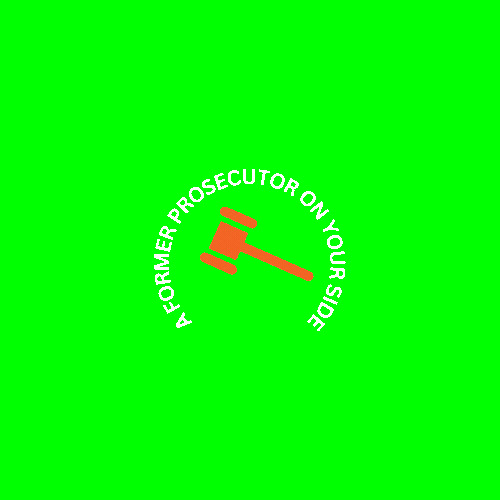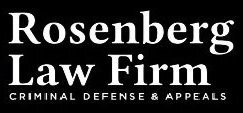Best Criminal Litigation Lawyers in Brooklyn
Share your needs with us, get contacted by law firms.
Free. Takes 2 min.
List of the best lawyers in Brooklyn, United States
About Criminal Litigation Law in Brooklyn, United States
Criminal litigation in Brooklyn, United States, covers the legal processes that follow when a person is accused of committing a crime in Kings County. Cases can range from low-level misdemeanors to serious felonies. The local system includes arrest and booking, arraignment, pretrial proceedings, plea negotiations, trials, sentencing, and post-conviction remedies. Brooklyn matters are handled in local courts - typically the Kings County Criminal Court for misdemeanors and preliminary felony hearings, and the New York State Supreme Court in Kings County for felony indictments and trials - with prosecutors from the Kings County District Attorney's Office and law enforcement from the New York City Police Department playing central roles.
Why You May Need a Lawyer
A criminal charge can carry serious consequences - jail time, fines, a criminal record, collateral consequences for employment, housing, immigration status, and professional licensure. You may need a lawyer in many situations, including:
- If you are arrested or have been formally charged - to protect your rights at the earliest stages.
- At arraignment and bail hearings - to seek the best release conditions and to advise on plea decisions.
- When facing felony or violent-crime allegations - because of higher complexity and penalties.
- For drug charges, DUIs, domestic violence, theft, assault, or sex-related offenses - to evaluate defenses and mitigation options.
- If you face probation or parole violations - to prevent reincarceration or to minimize sanctions.
- When dealing with juvenile charges, youthful-offender issues, or immigration-sensitive charges - to navigate special rules and protections.
- For plea bargains, motions to suppress evidence, discovery disputes, trial representation, and appeals - to pursue the best procedural and strategic outcomes.
Local Laws Overview
Key legal elements relevant to criminal litigation in Brooklyn include:
- Jurisdiction and courts - Brooklyn is Kings County. Misdemeanors and arraignments are usually handled in Criminal Court. Felony cases are often presented to a grand jury or proceed through preliminary hearings and then to Supreme Court if indicted.
- Arrest and booking - After arrest, a defendant is booked and brought to arraignment, often within 24 hours. The law protects against unlawful searches and seizures, and evidence improperly obtained may be suppressed.
- Right to counsel - Defendants have the right to counsel. If you cannot afford a lawyer, you may be eligible for representation through public defender offices or assigned counsel.
- Bail and pretrial release - Recent state reforms have changed how and when cash bail and pretrial detention are applied. Judges consider public safety, flight risk, and statutory standards when setting release conditions.
- Discovery and evidence rules - New York practice requires prosecutors to turn over certain evidence to the defense early in the case. Timely and full discovery affects motion practice and trial preparation.
- Plea bargaining - Many cases resolve through plea agreements. Plea deals can reduce charges or recommend lighter sentences, but they require informed decision-making.
- Speedy trial rights - There are time limits and constitutional protections intended to avoid unreasonable delay in bringing a case to trial.
- Diversion and alternative programs - Options like drug courts, mental health courts, community-based diversion, and adjournment in contemplation of dismissal (ACD) may be available in appropriate cases.
- Record sealing and post-conviction relief - New York law provides limited mechanisms for sealing certain records, youthful offender adjudications, and other post-conviction remedies. Eligibility and procedures vary depending on the offense and disposition.
Frequently Asked Questions
What should I do if I am arrested in Brooklyn?
Stay calm, identify yourself, and avoid resisting. You have the right to remain silent - politely say you will not answer questions without a lawyer. Ask for an attorney immediately. Provide basic identification information, but avoid giving detailed statements or signing waivers without counsel. If you can, contact a lawyer or ask for a public defender at your first court appearance.
Do I have the right to a lawyer, and how do I get one if I cannot afford one?
Yes. The Sixth Amendment and state law guarantee the right to counsel. If you cannot afford a private attorney, you may be represented by a public defender or assigned counsel through local legal services such as the Legal Aid Society or Brooklyn Defender Services. At arraignment the judge will ask if you can afford counsel and appoint one if you are indigent.
Should I talk to police without a lawyer present?
No. You should exercise your right to remain silent and request a lawyer before answering substantive questions. Anything you say can be used against you. Basic biographical information is usually required, but avoid discussing details of the incident, your whereabouts, or admitting fault until you have legal advice.
What happens at arraignment in Brooklyn?
Arraignment is your first court appearance after being charged. The judge reads the charges, advises you of your rights, and asks whether you want an attorney. Bail or pretrial release conditions may be set. For felony matters, the court may schedule preliminary proceedings or refer the case to a grand jury. It is critical to have counsel at or before arraignment if possible.
What is the difference between a misdemeanor and a felony?
Misdemeanors are lower-level offenses that typically carry shorter jail terms and smaller fines. Felonies are more serious crimes that can result in long prison sentences and greater collateral consequences. The classification affects where the case is prosecuted, the possible penalties, and the procedures used.
Can my case be dismissed or charges dropped?
Yes. Charges can be dismissed for lack of evidence, constitutional violations such as illegal searches, or at the prosecutor's discretion. Successful pretrial motions - for example to suppress evidence - can lead to dismissal. Prosecutors also may reduce or drop charges as part of plea negotiations or after investigation reveals weaknesses in the case.
What is a plea bargain and should I accept one?
A plea bargain is an agreement with the prosecutor to plead guilty to a lesser charge or to receive a recommended sentence in exchange for avoiding trial. Whether to accept a plea depends on the strength of the prosecution's case, the risks at trial, potential penalties, and your personal circumstances. Discuss all prospective deals with an experienced lawyer to understand long-term consequences.
How long will my criminal case in Brooklyn take?
Case timelines vary widely. Minor cases can resolve in weeks, while complex felony cases may take months or longer due to investigation, discovery, motion practice, and trial scheduling. Delays can occur from backlog, discovery disputes, or requests for continuances. Your attorney will provide a realistic timeline based on case specifics.
Can my criminal record be sealed or cleared in New York?
New York offers limited sealing and record-relief options. Some dismissals and youthful-offender adjudications can be sealed. Certain convictions may become eligible for sealing or other relief after periods of good behavior or completion of sentence and other requirements. Eligibility rules are specific and often technical - consult counsel to explore options.
What penalties or consequences beyond jail should I be aware of?
Criminal convictions can lead to fines, restitution, probation, mandatory counseling or treatment, driver license suspensions, loss of professional licenses, immigration consequences for noncitizens, and difficulty obtaining housing or employment. Even arrests without conviction can have collateral impacts. An attorney can help you understand and mitigate these consequences.
Additional Resources
When you need information or assistance, consider contacting or researching the following resources in Brooklyn, United States:
- Kings County District Attorney's Office - the local prosecuting authority that brings criminal charges and handles many plea negotiations.
- Kings County Criminal Court and New York State Supreme Court in Kings County - for court schedules, procedures, and filings.
- Public defender and indigent defense organizations - including local public defender offices, Legal Aid Society, and Brooklyn Defender Services for representation if you cannot afford counsel.
- New York State Unified Court System - for court rules, calendars, and procedural information.
- New York City Police Department - the agency that investigates many local arrests and initiates reports and evidence.
- New York State criminal justice support agencies - such as probation departments, pretrial services, and diversion programs that can help with alternatives to incarceration.
- State and local bar associations - for lawyer referral services and guidance on finding experienced criminal defense attorneys.
Next Steps
If you or someone you care about needs legal help for a criminal matter in Brooklyn, United States, follow these steps:
- Stop talking to police and request an attorney. Protect constitutional rights from the start.
- Document and preserve details - write down what happened, the names of witnesses, times, locations, and any evidence such as photos or messages.
- Decide on representation - contact a trusted private criminal defense attorney or ask the court for an assigned lawyer if you cannot afford one. Prepare to discuss fees, retainer terms, and attorney experience with similar Brooklyn cases.
- Bring all relevant documents to your attorney - police reports, summonses, subpoenas, arrest paperwork, and any correspondence from prosecutors or probation.
- Attend all court dates and follow your lawyer's instructions. Missing hearings can lead to arrest warrants or additional charges.
- Discuss case strategy - your attorney will evaluate the strength of the prosecution's case, possible defenses, plea options, diversion eligibility, and post-conviction relief possibilities. Ask about timelines, potential outcomes, and charge-specific consequences.
- Consider mitigation steps - gather character letters, evidence of rehabilitation or stable employment, and information about community ties to support bail hearings, sentencing, or diversion applications.
Criminal matters are time-sensitive and high-stakes. Prompt, informed action and experienced legal representation substantially improve the chances of a favorable outcome. If you are unsure where to begin, contact a local criminal defense attorney or public defender office as soon as possible.
Lawzana helps you find the best lawyers and law firms in Brooklyn through a curated and pre-screened list of qualified legal professionals. Our platform offers rankings and detailed profiles of attorneys and law firms, allowing you to compare based on practice areas, including Criminal Litigation, experience, and client feedback.
Each profile includes a description of the firm's areas of practice, client reviews, team members and partners, year of establishment, spoken languages, office locations, contact information, social media presence, and any published articles or resources. Most firms on our platform speak English and are experienced in both local and international legal matters.
Get a quote from top-rated law firms in Brooklyn, United States — quickly, securely, and without unnecessary hassle.
Disclaimer:
The information provided on this page is for general informational purposes only and does not constitute legal advice. While we strive to ensure the accuracy and relevance of the content, legal information may change over time, and interpretations of the law can vary. You should always consult with a qualified legal professional for advice specific to your situation.
We disclaim all liability for actions taken or not taken based on the content of this page. If you believe any information is incorrect or outdated, please contact us, and we will review and update it where appropriate.









